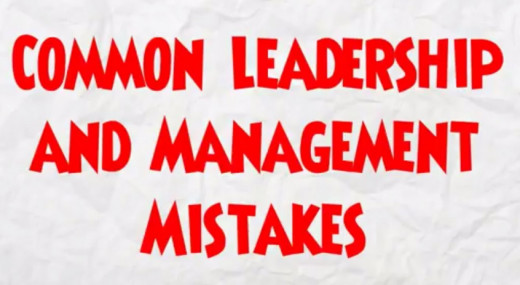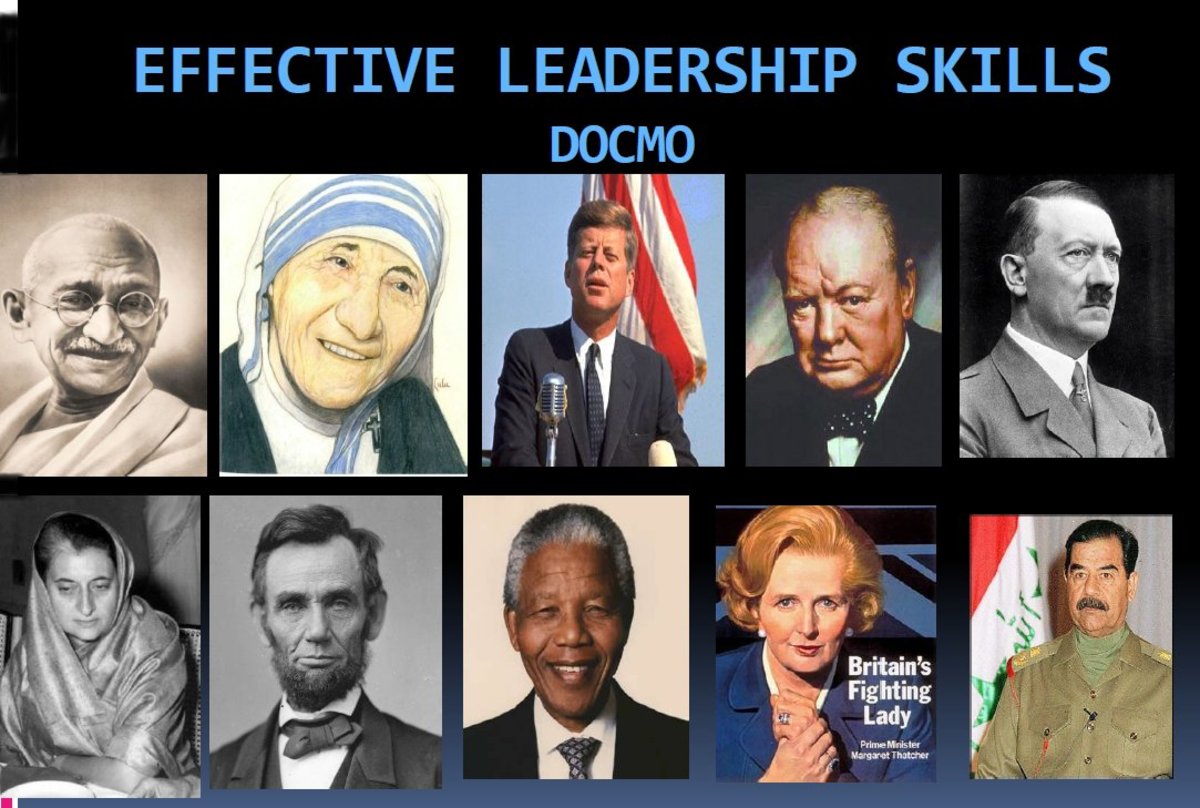How To Develop Leadership Skills:15 mistakes to avoid

How to develop leadership skills by avoiding common managerial mistakes
Acquiring knowledge on how to develop leadership skills for better management of people is essential for today's supervisors as managing their workforce at the workplace sets the tone of any business operation today.
Most of the supervisors lack the sensitivity and awareness needed for effective interaction with their workforce at the workplace. It need not be over emphasized that team leadership skills of managers are of paramount importance for long-term success of any organization in terms of profitability and competitive edge. Selection of managers in a people oriented forward looking organization should, therefore, mainly focus on training of the candidates on developing leadership skills. I have mentioned in this article about 15 common managerial mistakes that supervisors often make at the workplace, avoidance of which is paramount for becoming a successful leader. I have realized the importance of these lessons on how to develop leadership skills along the way while dealing with people in various industries over a period spreading over more than thirty years.

Mistakes to avoid to develop leadership skills
There are some time-tested qualities that determine the ability of a good supervisor in managing his people. It has been observed that as managers, we often do many good works but sadly we don't get everything right always, may be due to some avoidable managerial mistakes.
No manager is immune from making mistakes. Mistakes are nature's way of giving you opportunity for learning. Developing the skills to avoid these errors by knowing where the common pitfalls are is, therefore, the key to making of a good and effective leader. To effectively influence the workforce, supervisors must create a positive climate at work in which the workers feel motivated to give their best to complete their given tasks. They need to feel that they are genuinely part of the team, they are being heard and they are being appreciated. To create this positive climate supervisors require fundamental training on how to develop leadership skills to manage people to earn respect of their team members.
From my experience following are the 15 common managerial mistakes a supervisor need to notice, prevent, and avoid for effective management of his people. If a supervisor, no matter how seasoned he is, can avoid these managerial errors that make the difference between a bad and good supervisor, he can dramatically make his workplace more productive and eventually, lead to long-term success of his organization.
1. Not treating all employees equally
Try to be not only fair but scrupulously fair and every one must know it too. This is because there is nothing more demoralizing for people than to have a boss who is known to have favorites. If a favor has to be done, don’t do it secretly. Make sure that everyone knows about it, and why you are doing it;
2. Failing to create a friendly work atmosphere
Crack a smile from time to time. A sense of humour is fundamental for success in dealing with people. It makes your job much easier and it puts a certain amount of welcome sunshine into the lives of the workmen who work for you;
3. Failing to be a good listener
To keep your mouth shut if it’s a question of an argument. Listen to the other fellow and let him do most of the talking. Try to be as reasonable and open minded as you can. It is surprising how very seldom you can win people over by an argument alone. A change of heart is the only really effective thing and arguing can never achieve this;
4. Not making time for employees
Sometimes workers may need your time. Do not keep them waiting for your time or else they are not going to realize the value of their own time while they are at work. Keeping subordinates waiting around is the best way of getting them to develop habits of slackness while they are on the shop floor or at their desks;
5. Failure to build a trust relationship
Bee careful when you accuse anybody of bad motives for acting wrongly in any matter. No one ever thinks that he is deliberately acting wrongly. It is my perception that you will get far better results if you take it for granted that his intentions and motives are always good;
6. Failing to react to problems and issues
Do not refuse to discuss complaints as difficulties do not vanish as a result of ignoring them. Rather, if neglected, they are more likely to reach boiling point and explode;
7. Allowing emotion/anger to dominate decision making
Never to make a decision when you are angry or you are not in complete control of yourself. You must resist the temptation to give people the treatment they deserve. It’s far better surely to treat them the way that gets the best results;
8. Talking about weak points of people only
If you can’t say something good about someone, for goodness’ sake try to keep your mouth shut. The temptation so many of us have, and which we find difficult to resist, is to talk about the weak points of people. It only does harm and always rebounds. In such cases it’s usually best to keep mum and to say nothing at all;
9. Not respecting inner self of people
Criticizing anyone in front of everyone else is fatal and humiliating. You will surely destroy morale. If you have to criticize or rebuke someone, do it privately;
10. Discouraging others to make suggestions
If you don’t agree with someone’s idea or scheme, don’t discourage. It’s usually best to say nothing. The very great probability is that it will die a natural death through lack of support from others as well – and with no hard feelings;
11. Failing to appreciate the value of human relations
You can only very occasionally make a man do better work by threatening to fire him. But it’s not good human relations. Punishment may make a person grudgingly bring his work up to an acceptable standard, but he certainly won’t give his best. That’s why a patient, friendly approach is usually much more effective;
12. Accusing people based on presumption
When something has gone wrong, don’t accuse anyone immediately but investigate. Assume innocence until you have proof of guilt. Remember to find out all the facts before you accuse anybody;
13. Letting others to influence decision
Don’t be led away by the smart talking of the young fellow in a particular section, as many of the not-so-glamorous fellows elsewhere may be far more deserving. Before you give any privilege or favor to anybody, think twice. Any privilege given to one department is bound to be asked for by other departments. So while it is important to be sympathetic to people’s needs, examine all aspects of the problem before you give anything;
14. Failure to keep secret
It is important for the supervisor to remember that the management is put under lot of embarrassment when something confidential leaks out. A supervisor who can’t keep a secret is certainly a weak link in Management and sooner or later he will find himself deservedly, in hot water;
15. Failure to avoid patching up mistakes
In a factory one of the traps a supervisor frequently falls into without realizing it, is to keep on patching up mistakes. You will be surprised at the number of people who often make such common managerial mistakes when a little time and thought and looking ahead could have prevented these lapses being made at all;
Conclusion
To conclude I can say that one thing I have found while working with people in the industries that key to productivity is not in the executive suite but it is out on the factory floor where supervisors' leadership qualities in managing people make workmen willingly work for him. Therefore, the focus in this article is to provide realistic tips on how to develop leadership skills and qualities to manage people by avoiding common managerial mistakes of supervisory managers rather than to suggest academic approaches.








